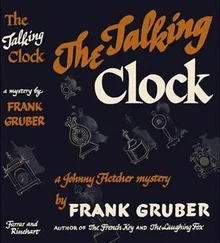I showed it to her later, the last time we were together. I was packed, with my casts and paintings all sent ahead; we were to leave for the ship at Genoa within the week.
She laughed like a crow when she saw it. “Oh, Velázquez, we would burn for this if anyone saw it, you and I, our smokes would mingle above the Campo dei Fiori; it is the worst thing ever painted. Give it to the Pope as a parting gift, I beg you, and let us die together.”
“No one burns for a painting anymore,” I said.
“You are quite right, nor have I taught you wit in all these long months or to know when I speak in jest. But, my love, it is still enough to ruin you. Whatever possessed you to put your face and my face in it?”
“I was drunk,” I said.
“That will not do when they drag you before the Inquisition. There are only two things to be done with it. You can sell it to Heliche. He will value it and keep it close.”
“I do not sell paintings,” I said. “I am not in trade.”
“Oh, pardon me, Don Diego de Silva y Velázquez, I had forgotten,” she said, “but in that case a brushload of flake white will do.”
“I had thought you could take it. I had planned to give it to you.”
“Oh, did you!” she cried. “What generosity! So that in my misery I could be daily reminded of the great passion of my whole life? Velázquez, my dear love, you are an ass. I will paint it over this minute. I will paint over it and paint something else on top of it, a religious subject in the Venetian manner, and give it to a church. Then may God forgive me.”
So I left her and returned to my apartments, and I was busy with my leaving and thought of her not at all. Until that night, in my bed, when I considered that never again would she share it, nor would I ever again experience those pleasures she knew how to draw from me. Then I felt bereft and sleep would not come, and I called for hot wine and so achieved the oblivion I sought.
And awoke in terror of the light that shone from a glass with no flame and the noises from the street outside and sounds from a small box as if a demon were captive inside, and my first thought was, I have died in the night and I have awakened in hell, this is my punishment. A sound of roaring, like a torrent, and a gurgling noise from a room nearby, and then to my extreme horror through the door walked a naked woman I had never seen before, and I screamed and slid from the bed and crouched in a corner, covering myself and crying prayers, begging forgiveness. And the woman came closer with a look of consternation on her face, trying to embrace me and speaking a language like the Romans speak, but I could not make out one word in five. When she saw I would not be tempted into lust she wrapped herself in a robe and left, and I pulled the blanket over my head and wept for my damnation.
So this must be like trying to describe sex to a child or religious exaltation to an atheist; it’s something you have to experience to know about. I was having those thoughts and feelings, Velázquez in torment, and at the same time, like a carrot in a boiling stewpot, there floated into my consciousness bit by bit the pattern of memories and learned behaviors that constituted the personality of Charles Wilmot, Jr. That’s not a box of demons, that’s a clock radio playing. Those noises are early automobile traffic through the piazza. That’s a lightbulb.
Then the enormity of what had just happened to me struck me in the vitals. I was lucky I now recalled where the bathroom was and what it was for, because I barely reached the toilet in time. They found me that way, all retched out and shivering, and Franco got me into the shower and cleaned off and Sophia put me to bed and stayed, trying to find out what was wrong with me, and the odd thing now was she was speaking Roman dialect and expecting me to understand, and finally I asked her to speak English and, with a puzzled look on her face, she switched languages.
She wanted to know what was up with me, naturally, and I made something up. I said that something must have gone wrong with my brain during the night, maybe a tiny stroke, because when I woke up I didn’t know who I was or where I was. And there was something wrong with my memory, some kind of amnesia.
This alarmed her. She squeezed my hand and put her other hand to the hollow of her throat. “Yes, but you remember us .”
“No, I don’t,” I said. “My last memory is us going to that little bar and talking with your friends and me drawing a bunch of people.”
“Chaz! That first time at Guido’s was months ago! How could you not remember?”
“What’s the date, Sophia? Today’s date.”
“It’s the third of March.”
“Okay, then everything from mid-December onward is a complete blank.”
“But, you will see doctors…it will come back, yes?”
“It could,” I said, carefully, not believing it at all. “You could help me if you sort of told me what I was like, what I’ve been like, how we got together and all, what I’ve been doing.”
It took some prodding, because amnesia is so terribly threatening. Our lives are constructed so much of shared memories that we tend to panic when our partners in these refuse to confirm our own. But in a little while, when she saw I wasn’t going to suddenly remember, she began to tell me her tale. She’d started to pose the day after we’d gone out to Guido’s. It was pleasant enough. We’d talked as I worked, just chat at first, but later I’d told her something about my life and she’d told me something about hers, her family, her lovers, her ambitions for herself and the boy. We worked in the morning and then had lunch with the ménage. She related anecdotes: Baldassare and his liver, and the home remedies he’d marshaled in its support; about Franco and his vanity and his women and his dark past; about little Enrico and his teachers and friends. A domestic life in all its Italianate richness. It had apparently been a happy time.
And I’d told her about my family in the States, how I was still more or less carrying a torch for my wife. She knew it was a long shot, but she’d liked me. She thought I was gentle, a decent man, a genius with paint. She admired me. She didn’t care that I was hung up on another woman. Any man worth having had other women in his life, but I was here now and she had a feeling for me, one she hadn’t felt in a long time. And so it happened. One day, when the light had gone, she’d risen naked from the couch and embraced me, and I was hesitant, like a young girl, which she found charming, but in the end I’d fallen back on the couch with her, and we’d made love and it was wonderful. And so on, for the next months, and she liked how I was with Enrico, he’d opened up so much, was always asking if Chaz was to be his new babbo .
At that point she was crying, searching my face for some sign that I’d shared this life, but there was none. I mean, I wasn’t being callous, there was just nothing there-she was a nice woman with whom I’d had one date, and so I steered the conversation as gently as I could to the painting.
“Oh, yes,” she said, “you did your painting. You don’t remember that either?”
“No. But I’d like to see it now. Maybe it would snap me back or something.”
“It’s not here,” she said. “Baldassare has taken it to the laboratory on Via Portina, an industrial area, you understand? He needs high vacuums and ovens, special equipments for this work, the aging.”
“What’s the painting like?”
“What is it like? It is like Velázquez. It is Velázquez, the most astonishing thing I have ever seen. Baldassare says it is a miracle.”
And she told me what I had painted, and I recalled it well, having just finished it a few weeks ago in subjective time, in Rome, in 1650. Painting’s not just in the eye and the head, it’s in the body too, like a dance-the hand, the arm, the back, the way you lean forward and sideways to check out a passage, the standing away and moving close. So when you look at something you’ve done, you have all the intimate body memory, and in this case I had a whole other set of memories, the feel and scent of this particular woman’s skin, the density of Leonora’s living flesh in my hand and under me and on top of me, the squirming damp reality of it. And more than that-this is even harder to explain or even to think about-I had the sense memories of somebody else, somebody else doing the painting. The brain fucks with your head, but the body never lies, or so I’d thought.
Читать дальше












